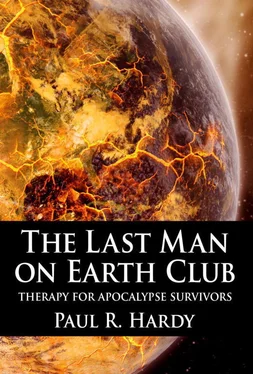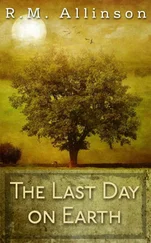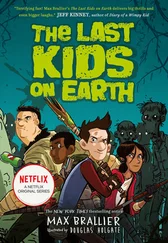Iokan leaned forward as I showed video from parallel worlds the ancient Quillians had colonised. “They learned their biotech by experimenting on other worlds.” A cow, fused into the ground, legs replaced by roots, screaming as it struggled to get away. Bushes of animal foetuses. A plague of arm-length caterpillars consuming every creature in their path. One bit into the brain of a struggling, silk-bound squirrel. Iokan watched the screen with the eyes of a trained observer, taking in data without judgement or distress.
“They were also interested in humans. They didn’t do as much genetic testing, but they were very interested in sociological manipulation. Which brings us to the Ilfenard Experiment…”
I switched the views again; new sets of images, showing a green world from orbit, and native hunter-gatherers from different continents. “They found a world, Ilfenard, where humans were all over the planet, but still in the stone age. A fully human species but no understanding of science or any explanation for the universe other than religion.”
“What did they do?”
“They paid them a visit. Lots of visits, all over the world. They’d come down with all the lights on and rockets blazing, land in a clearing, set up camp, and make contact. They’d employ the natives to show them around the area and learn the language, but what they were there for was to give them things. Little trinkets to begin with; gizmos that had lights on, or made sounds, anything to get them used to the idea of taking gifts.
“And then they left, for ten years. Just up and out into orbit, leaving the natives with no idea what had happened. By the time they came back, all the little batteries they’d left in the trinkets were still working, so they’d become incredibly valuable. The tribes were fighting wars over them.”
Iokan sat back in his chair. “I think I can see where this is going…”
“As soon as the Quillians returned, they were surrounded by natives desperate for more handouts. They did it every ten years — turn up, hand out goodies, and then vanish without a word. They did it at different intervals across the planet, but ten years was apparently optimal.”
“Optimal for what?”
“Building a religion.”
“I see.”
“It didn’t take long before they were associating the Quillians with gods, and changing their own legends to fit them in. Then the Quillians started to hand out things that were actually useful: compasses, tools, lights, I mean real lights you could use to see at night. They never explained how they worked, so the natives assumed it was magic.
“About fifty years after they started, the Quillians skipped a visit. All the natives completely lost it. Leaders sprung up saying they’d been immoral or hadn’t worshipped properly. So they built the religion up bigger than ever. Next time they were due, the Quillians showed up as normal. The change was amazing. The place where they landed had turned into a city. The religion was starting to make them all stay in one place; the priests were using the trinkets like a protection racket to get food and offerings from all the tribes in the area. The Quillians put in a few more visits and let it develop, then vanished for a hundred years.
“When they came back, the natives had figured out agriculture, but they were relying on all the tools the Quillians had left behind — which were breaking down as time went by. As they lost their tools, their crops were starting to fail, and they were on the brink of famine. And since they didn’t have a clue how the tools worked, they thought the failure was a spiritual one. They’d started sacrificing their own children to bring the gods back.
“The Quillians gave them more tools to be getting on with, and did the usual routine for a few more decades. And then they left, but not because of the experiment. There was a disaster on the Quillian homeworld and their own civilisation fell apart. A thousand years later, they went back to see what had happened.
“But there wasn’t anything left. The Quillians found a massive ecological disaster, and all the humans long since dead from everything that went with it. Nuclear weapons in some areas, biological warfare in others, complete crop failure and famine elsewhere. The natives had figured out the principles behind the tools the Quillians had left behind, and that gave them a massive headstart on science and technology before they were ready for it.
“But they’d remembered the Quillians. They’d had religions about them right up until the end. There were statues of their spaceships all over the planet. The Quillians investigated and found that a lot of the wars that destroyed the world were religious wars. There were faiths based around all the different things they’d worked out from studying the tools and trinkets, and they used them against each other. The Quillians realised the crime they’d committed, and stopped all their experiments.”
“And you think that’s what happened to us.”
“It’s something to think about.”
“You think these… Quillians came to our world? And did this to us?”
“Probably not them. The timescale doesn’t fit — Ilfenard ended nearly two thousand years ago, and the Quillians kept themselves to themselves for a long time afterwards. But that doesn’t mean something similar couldn’t have happened. There are more human species out there than the IU can keep track of.”
“But this is an isolated incident. Surely?”
“I wish it was. Other species have done the same kind of thing, sometimes by accident. This is the worst incident we have on record, and we know enough to guess that similar crimes have been hidden from us. It even happens on worlds with no interversal contact. All it takes is a more advanced society encountering a less advanced one and leaving their rubbish behind, and then even that can start a religion.”
“It’s not a very flattering portrait of humanity, is it?”
“No. It isn’t.”
“But it’s not true on my world. It can’t be true.”
“Why not?”
“Because they came back. They weren’t irresponsible explorers who came by one day and left a civilisation behind. It was their planet. And they came back.”
“The Quillians came back. Repeatedly.”
“But they were only human.”
“And the Antecessors weren’t?”
“They’re more than human.”
“So, posthumans, then?”
“They’re living fields of energy. I think that goes a little further than ‘posthuman’.”
“But they were people, once? Like you and me?”
He thought about that. “Yes. They were human once.”
“How do you know? How do you know the energy beings you saw are the same as the people who lived on your world three thousand years before?”
He took a breath. “Because I saw them. Before they came back.”
“Really?”
“Really.”
“When was this?”
“I… can’t talk about it.”
“Ah. Something that happened in the other part of your career.”
“Yes. I… saw one of them. I saw it leave our world and go out into the stars. Perhaps… something out there changed them. I don’t know what…”
“What do you think happened?”
“I don’t know. Don’t ask me any more. I don’t know.”
It didn’t look much like an improvement; but the automatic divinity of the Antecessors had shrunk a little. It was slow progress, but progress nevertheless.
Elsbet was asking questions. She wanted to know when she could return to her unit and get back into the war, and we couldn’t keep telling her she needed to recover when it was obvious there was nothing physically wrong with her. It was time to tell her the truth, as carefully as we could.
Читать дальше












